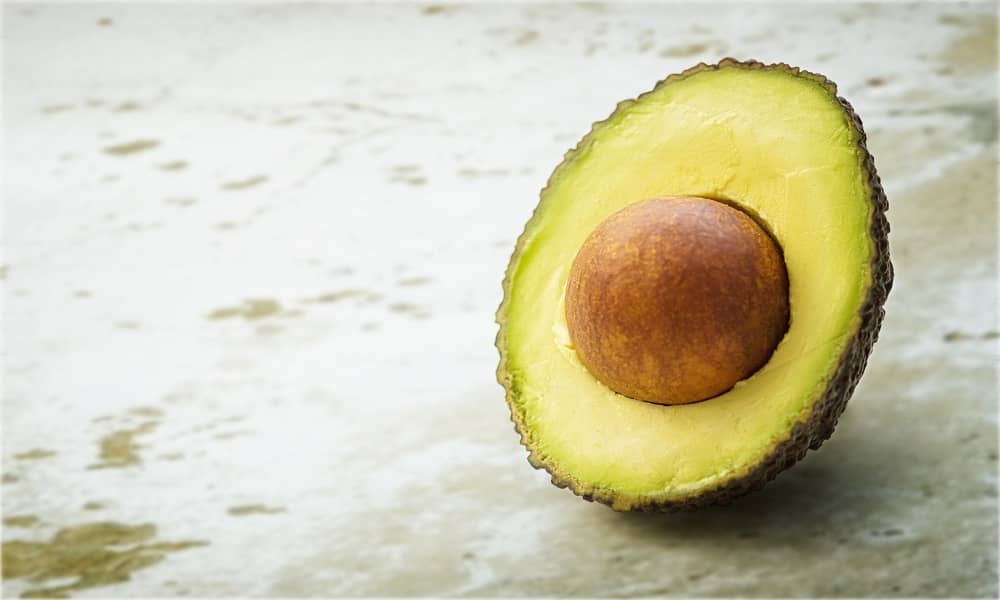


05 Apr Avocado Health Benefits | Eat 2 Times a Week for a Healthy Heart
If you are among those who love to start their day with avocado toast, here’s some good news for you…
The high nutritional value of avocado makes it a must-have in your diet.
In fact, it’s found in research that eating at least 2 servings of avocado a week can help maintain cardiovascular health.
Key Highlights Of The Study:
- Eating avocados can reduce the risk of cardiovascular disease.
- Replacing certain food products with avocados is also associated with a lower cardiovascular risk.
- It’s recommended to improve the strategies of consuming a healthy diet rich in fruits and vegetables.
Interestingly, since 2001, the per capita consumption of avocados has increased. Moreover, it has tripled to 8 pounds in 2018.
One of the reasons can be the amazing avocado health benefits, which are now no more a secret.
By the same token, this research about avocado benefits for heart health tells you more about it.
Avocado Benefits Research: Eat ≥2 Servings a Week to Lower Heart Disease Risk


After getting viral on the Tik-Tok trends, avocados have become everyone’s favorite fruit.
Suddenly, many folks started eating avocado with toast, making guacamole more often, and mixing avocado in their salads.
Nevertheless, one thing led to another, and just after a few days, people were already searching for the benefits of eating an avocado.
Here’s a detailed analysis of the avocado research paper that enumerated the benefits of avocado for lowering cardiovascular disease risk.
Premise of Study
There’s more to avocados than being just a viral trend.
According to new research published in the Journal of the American Heart Association, avocados are good for your heart health.
It contains dietary fiber and unsaturated fats, especially mono-saturated fats.
These favorable components have a positive impact on heart health.
Interestingly, it’s the first large prospective study that shows the positive connection between higher avocado consumption and lower cardiovascular events.
Study Participants
This avocado research includes a 30-year-old study of more than 110,000 health professionals.
Researchers followed a group of people that included:
- 68,780 women of age 30-55 years from a Nurse’s Health Study.
- More than 41,700 men of 45-75 years from a Health Professionals follow-up study.
Moreover, for the study, researchers used food frequency questionnaires. It assessed the participant’s diet at the beginning and then every 4 years.
The questionnaire asked about the frequency and consumption of avocado.
Plus, the researchers calculated the avocado intake. Notably, 1 serving equaled half of an avocado or half a cup of avocado.
Notably, all the participants were free of cancer, coronary heart disease, and stroke at the beginning of this study.
Results
During more than 30 years of follow-up, researchers documented 9,185 coronary heart diseases and 5,290 strokes.
Further analysis of this avocado benefits research came up with the following results:
#1. There was a 16% lower risk of cardiovascular disease and a 21% lower risk of coronary heart disease. This was evident among the participants who ate 2 or more servings of avocado each week.
#2. On the basis of this statistical modeling, replacing ½ a daily serving of butter, cheese, egg, yogurt, margarine, or processed meats, such as bacon, with the same amount of avocado also lowered the risk of cardiovascular disease by 16%-22%.
#3. There was no additional benefit to substituting ½ serving of avocado with the same amount of olive oil, nuts, and other plant oils.
#4. No significant associations were found in relation to the risk of stroke and how much avocado was consumed.
One thing is for sure, this research on avocado certainly depicts the avocado fruit benefits on cardiovascular health.
Key Extracts from the Study
Further analysis tells more about the effects and benefits of avocado:
- The researchers found that healthcare practitioners can recommend patients to replace certain spreads with avocado.
These spreads include those with high saturated fats, such as processed meats and cheese.
- The study aligns with the findings of the American Heart Association’s Guidance to follow the Mediterranean diet. It suggests that a healthy dietary pattern is crucial for heart health. Hence, one can follow a dietary plan focused on fruits, vegetables, healthy foods, and plant-based oils.
RELATED: Mediterranean Diet Plan for Your Heart
- The study further concludes that, although no one food is the ultimate solution to eating healthy, the possible avocado benefits are quite evident.
However, in spite of all these tall claims, the study does need some reconsideration based on the following.
Limitations of the Study
#1. This study was observational. Hence, its direct cause and effect cannot be proved.
#2. The dietary consumption was self-reported. Hence, there are chances of measurement errors.
#3. The participants were mostly health professionals and nurses. Hence, the results may not apply to the other groups.
However, we cannot deny that this study does hold some credibility. Anyways, there’s no harm in including avocados in your diet plan.
Avocados are accessible and are easy to add to meals. These are popular, and desirable, and are often found at many American homes and restaurants.
You can smash them on the toast, make a smoothie out of it, mix it with salad, or make guacamole.
Not to mention, the greenish-yellow pulp of this alligator pear contains a wide variety of nutrients.
The nutritional value of a single avocado (3.5 ounces, serving 3) is:
- Vitamin B5: 14% of RDA
- Folates: 20% of RDA
- Vitamin B6: 13% of RDA
- Vitamin E: 10% of RDA
- Potassium: 14% of RDA
- Vitamin C: 17% of RDA
- Vitamin K: 26% of RDA
NOTE: RDA = Recommended Dietary Allowance
Certainly, avocados are the powerhouse of nutrients and have long-term benefits apart from lowering the risk of cardiovascular disease.
On that note, let’s have a look at the other health benefits of avocado.
Other Proven Health Benefits of Avocado



Often mistaken as a vegetable, avocados are actually fruit.
Numerous research-backed benefits of avocados will compel you to add them to your diet in some form.
Here are some of the avocado benefits you might want to know.
#1. Avocados May Assist Weight Loss
Rich in vitamins, minerals, healthy fats, and fiber, avocados have the ability to keep you full for longer.
Hence, these are great for those trying to lose weight and control their cravings.
Also, according to a study, researchers from the University of Illinois at Urbana-Champaign found that avocados can change belly fat distribution in women.
In the study, 105 overweight adults participated in a randomized controlled trial.
They were only provided one meal a day for 2 weeks. The study concluded women who consumed avocado in their daily diet witnessed a reduction in deeper visceral abdominal fat.
#2. Avocados can Surely Benefit Your Skin
If you are consuming avocados, you are already providing enough vitamins and nutrients to your body.
These vitamins and minerals have a sincere contribution to your overall health, and this includes your skin.
Interestingly, there’s one more way to reap avocado benefits other than adding it to your diet.
This may surprise you, but topical avocado oil benefits for skin do exist.
Avocado benefits for skin include:
- Fast healing of wounds
- Improved collagen density
- A lower number of inflammatory cells
Additionally, a study showed that, when mixed with vitamin B12 cream, avocado oil may help with the long-term treatment of psoriasis.
#3. Avocados for Brain Health
Who knew avocados on toast can help you with your cognitive health?
Yes, you read that right.
Eating avocados can fill you with energy, remove fatigue, and shift you to a better mood.
To clarify, avocados are rich in monounsaturated fats.
According to research, dietary monounsaturated fats are linked with blood pressure, which is further linked with cognitive decline.
Hence, by adding avocados to your diet, you can not only keep your blood pressure under control but also boost your cognitive skills.
Also, when pregnant women eat avocados, the carotenoids and vitamin A in avocados increase the neurological development of the baby.
#4. Avocados Help Absorb Other Nutrients
This might be hard to believe at first, but one of the avocado benefits includes better absorption of other nutrients.
To elaborate, vitamins such as A, D, E, and K are fat-soluble. That is to say, they require high fatty acid foods to get absorbed.
So, as avocados are rich in monounsaturated fat, it’s best to assist in the absorption of such vitamins.
Interestingly, research offers promising clues to the conversion of provitamin A to vitamin A.
Another study depicted that adding avocado or avocado oil to the salad or salsa can increase the absorption of antioxidants by 2.5 to 15-fold.
#5. Avocados can Protect the Eyes
Avocados are not only great for your heart health but also great for your eyes.
It contains nutrients like Lutein and Zeaxanthin that are essential for your eye health.
According to research, these nutrients have the ability to minimize the possibility of cataracts and macular degeneration.
Hence, it’s time you should start eating avocados for your overall health.
From skin to eyes to cardiovascular diseases, avocado health benefits are not at all restricted.
But what still remains unanswered is how many avocados should you eat in a week.
Are there any risk factors to consuming many avocados?
How Many Avocados Should You Eat in a Week?
Considering the benefits and nutritional value of avocado, you may feel like eating loads of it.
However, you need to hide your generous side and monitor your appetite when adding avocados to your diet.
Avocados are nutrient-dense fruit. Its creamy texture contains high fat and calories. Hence, you need to take control of its portion.
So, how much avocado can you eat in 1 week?
You can eat around ¼ or simply 50 grams of avocado in a week.
It’s important to plan and downsize your servings to reap only the benefits of avocados.
- A few thin slices of avocado contain 65 calories
- 1/3 contains 80 calories
- ½ fruit contains 120 calories
- 1 avocado contains 240 calories
Notably, 1 avocado fulfills around 10-20% of your daily calorie requirement. Hence, it’s vital to balance the portion with other veggies.
Don’t overdo the avocados and be rational.
The Outlook
An open-access peer-reviewed Journal Of The American Heart Association clearly offered evidence of avocado benefits for cardiovascular disease.
The study demonstrated that eating ≥2 servings of avocado a week lowers the cardiovascular disease risk when compared to those who rarely ate avocados.
Furthermore, the study also showed the positive sign of substituting ½ serving of butter, egg, yogurt, and cheese with avocado.
Considering the benefits, it’s no wonder there was a trend to eat avocados with toast.
But don’t get too carried away and control your portion size while making reels of eating avocados.
Hope you found the blog intriguing.
If you know someone who loves avocados, don’t forget to share the benefits with them. Give them more reasons to consume avocados by sharing this blog.
SOURCE STUDY: Avocado Consumption and Heart Disease Risk
READ NEXT: Why is it bad for the heart to sleep with lights on



No Comments